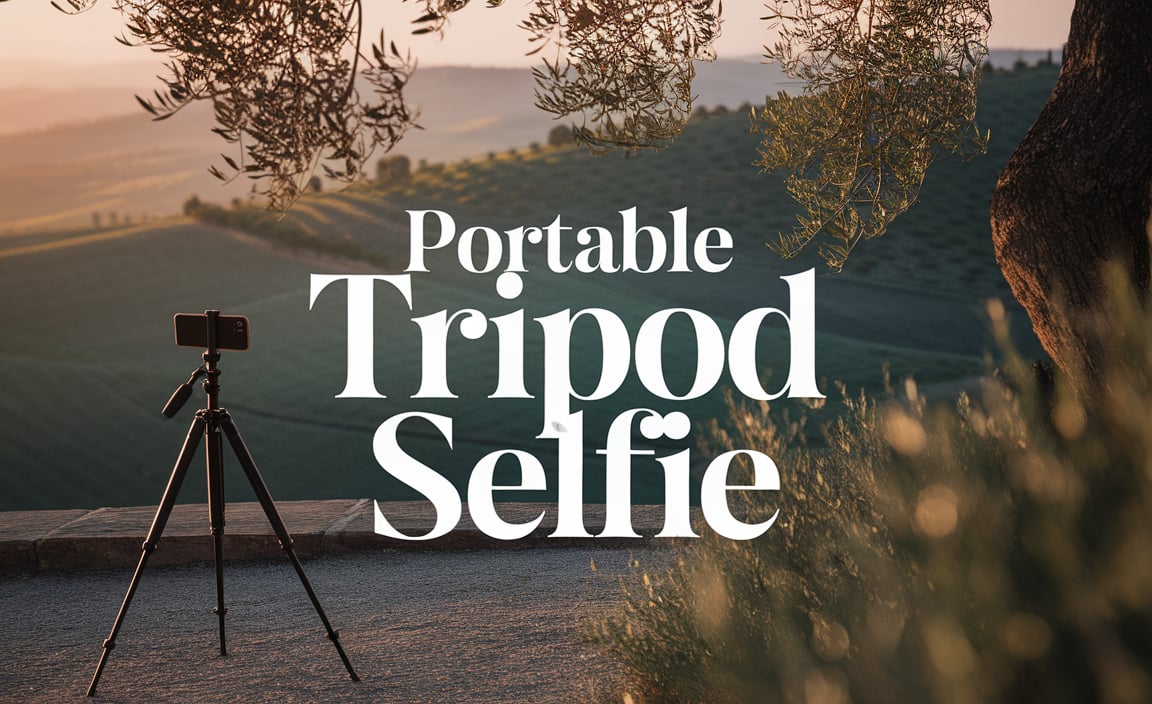Abu Dhabi first-timers guide: Essential tips for a smooth trip include packing light, respecting local customs by dressing modestly, staying hydrated under the desert sun, using local transport or ride-sharing apps, and booking popular attractions in advance. Embrace the culture, enjoy the diverse attractions, and plan ahead for a memorable visit.
Planning your first trip to Abu Dhabi can feel a little overwhelming, can’t it? You want to experience all the magic of this vibrant city without any hiccups. It’s totally normal to wonder about everything from what to pack to how to get around respectfully and comfortably.
But don’t worry! We’re here to make your adventure seamless and stress-free. You’ll soon feel like a seasoned traveler, ready to soak in all the wonders Abu Dhabi has to offer. Get ready for practical advice that will set you up for an amazing journey!
Your Essential Abu Dhabi First-Timers Guide
Welcome to Abu Dhabi! This incredible capital of the UAE is a dazzling blend of futuristic ambition and rich cultural heritage. From breathtaking skyscrapers to serene desert landscapes, there’s so much to discover. As a first-timer, a little planning goes a long way in ensuring your trip is as enjoyable and comfortable as possible. This guide is packed with essential tips, practical advice, and local insights to help you navigate your adventure with confidence.
1. Visas and Entry Requirements
Before you even think about packing, let’s sort out the essentials. Depending on your nationality, you might need a visa to enter the UAE. Many nationalities can get a visa on arrival, but it’s crucial to check the latest UAE visa requirements for your specific country well in advance of your travel date. Ensure your passport is valid for at least six months beyond your intended stay.
2. Best Time to Visit
Abu Dhabi experiences a hot desert climate. For the most comfortable weather to explore its outdoor attractions, plan your visit between November and March. During these months, temperatures are milder, making it perfect for sightseeing, enjoying beaches, and venturing into the desert.
Here’s a quick look at Abu Dhabi’s climate:
| Month | Average High (°C) | Average Low (°C) | Average Rainfall (mm) | Notes |
|---|---|---|---|---|
| November | 32°C | 19°C | 0 mm | Pleasant, start of the cooler season. |
| December | 28°C | 15°C | 5 mm | Coolest month, ideal for outdoor activities. |
| January | 26°C | 14°C | 10 mm | Consistently mild and sunny. |
| February | 28°C | 15°C | 10 mm | Warm and pleasant, flowers start to bloom. |
| March | 32°C | 18°C | 5 mm | Temperatures start to rise, still comfortable. |
| April | 36°C | 21°C | 0 mm | Getting hotter, but manageable in the mornings/evenings. |
| May-October | 40°C+ | 28°C+ | 0 mm | Very hot and humid. Indoor activities are recommended. |
3. Packing Essentials for Comfort and Respect
Packing wisely is key to a comfortable trip, especially in a region with different cultural norms and a warm climate. Think light, breathable fabrics and layers.
- Lightweight Clothing: Cotton, linen, and other breathable fabrics are your best friends. Long sleeves and trousers are not only comfortable in the heat but also respectful.
- Modest Attire: While tourist areas can be more relaxed, it’s important to dress modestly out of respect for local culture, especially when visiting religious sites like the Sheikh Zayed Grand Mosque. This means covering your shoulders and knees. For women, a light scarf can be very useful for covering hair if needed.
- Swimwear: If you plan to visit beaches or hotel pools, pack your swimwear. However, ensure you’re covered up when walking to and from these areas.
- Comfortable Shoes: You’ll be doing a lot of walking, so comfortable, sturdy shoes are a must.
- Sun Protection: A wide-brimmed hat, sunglasses, and high SPF sunscreen are non-negotiable. The sun is strong!
- Light Jacket or Shawl: Evenings can sometimes be a little cooler, and air-conditioned indoor spaces can be chilly.
- Personal Care Items: Pack all your personal care essentials. For longer trips or if you have specific needs, consider travel-sized versions of toiletries. For travelers who may need them, discreet options like incontinence underwear can provide comfort and confidence for adults. Similarly, for parents traveling with children, preparing with child diapers and travel-friendly changes ensures a smoother journey for everyone.
- Adapters and Power Banks: UAE uses Type G plugs (the UK style). A universal adapter and a portable power bank are essential for keeping your devices charged on the go.
4. Navigating Abu Dhabi: Getting Around
Abu Dhabi is spread out, so planning your transportation is key for efficient exploration. Taxis are plentiful and relatively affordable.
- Taxis: Metered taxis are readily available at airports, hotels, and major attractions. You can hail them on the street or book one through an app like Careem or Uber.
- Ride-Sharing Apps: Services like Uber and Careem operate extensively in Abu Dhabi and often offer a convenient and cost-effective way to travel.
- Public Buses: Abu Dhabi has an extensive public bus network. While it’s the most budget-friendly option, it can be slower and less convenient for tourists unfamiliar with the routes. You’ll need an ‘Hafilat’ card to pay for fares.
- Car Rental: If you’re comfortable driving in a new environment and plan to explore beyond the city, renting a car offers flexibility. Remember they drive on the right side of the road.
5. Cultural Etiquette and Customs
Understanding and respecting local customs will greatly enhance your experience and foster positive interactions. The UAE is a Muslim country, and its culture is rooted in Islamic traditions.
- Dress Code: As mentioned, modest dress is appreciated. This means avoiding overly revealing clothing in public places. Women may wish to carry a light scarf.
- Public Displays of Affection: Keep public displays of affection to a minimum to avoid causing offense.
- Ramadan: If you visit during the holy month of Ramadan, be mindful of fasting individuals. Eating, drinking, and smoking in public during fasting hours is prohibited. Many restaurants also operate with limited hours or closed dining areas during the day.
- Alcohol: Alcohol is available in licensed hotels and restaurants. However, drinking in public or being intoxicated in public is illegal.
- Greetings: A handshake is a common greeting. When meeting someone of the opposite gender, it’s generally polite to wait for them to extend their hand first.
- Photography: Always ask for permission before taking photos of people, especially women and children. Avoid photographing government buildings or military sites.
6. Must-Visit Attractions
Abu Dhabi boasts a wealth of incredible sights and experiences. Here are some absolute must-sees for first-timers:
- Sheikh Zayed Grand Mosque: An architectural masterpiece and one of the world’s largest mosques. It’s a breathtaking sight, especially at sunset. Remember to adhere to the strict dress code: women must cover their hair, arms, and legs. Men should wear long trousers. Abayas (traditional long dresses) are available for rent if needed.
- Louvre Abu Dhabi: A stunning museum showcasing art and cultural treasures from around the globe. Its architecture is as impressive as its exhibits.
- Qasr Al Watan: The UAE’s presidential palace open to the public. It offers a fascinating glimpse into the country’s governance, heritage, and art. The sheer scale and intricate design are awe-inspiring.
- Yas Island: Home to Ferrari World Abu Dhabi, Yas Waterworld, Warner Bros. World Abu Dhabi, and the Yas Marina Circuit (home of the Formula 1 Etihad Airways Abu Dhabi Grand Prix). It’s an entertainment hub for all ages.
- Mangrove National Park: Explore the UAE’s natural beauty with a kayak tour through the serene mangrove forests. It’s a wonderful escape from the city bustle and a haven for wildlife.
- Corniche: A beautiful waterfront promenade perfect for a stroll, cycling, or enjoying the city skyline. It features parks, beaches, and family-friendly activities.
- Desert Safari: Experience the magic of the Arabian desert with a safari adventure. Options range from gentle dune drives and camel rides to overnight stays under the stars. It’s a quintessentially Emirati experience.
7. Food and Drink
Abu Dhabi offers a culinary scene as diverse as its population. From traditional Emirati cuisine to international flavors, there’s something for every palate.
- Emirati Cuisine: Try local delicacies like Machboos (spiced rice with meat or fish), Harees (a slow-cooked wheat and meat dish), and Luqaimat (sweet dumplings).
- International Flavors: You’ll find everything from Indian and Pakistani curries to Italian pasta, Japanese sushi, and American burgers.
- Coffee Culture: Arabic coffee (gahwa), often served with dates, is a symbol of hospitality.
- Hydration: Drink plenty of bottled water throughout the day to stay hydrated.
- Budgeting for Food: Eating at local cafeterias or food courts in malls can be quite affordable. Fine dining restaurants can be pricey, especially in hotels.
8. Staying Connected
Keeping in touch is easy in Abu Dhabi. You can purchase a local SIM card upon arrival at the airport.
- SIM Cards: Providers like Etisalat and du offer tourist SIM packages that include data and call minutes. You’ll need your passport to register.
- Wi-Fi: Free Wi-Fi is widely available in hotels, malls, cafes, and public areas.
9. Currency and Money Matters
The local currency is the UAE Dirham (AED). Credit cards are widely accepted in most establishments, but it’s always useful to have some cash for smaller purchases or local markets.
- ATMs: ATMs are readily available throughout the city.
- Currency Exchange: Exchange bureaus are also common, especially in shopping malls and tourist areas.
- Tipping: Tipping is not mandatory but is appreciated for good service. A 10-15% tip is customary in restaurants if a service charge isn’t already included. Taxi drivers usually expect you to round up the fare.
10. Safety and Health
Abu Dhabi is known for being a very safe city with a low crime rate. However, it’s always wise to take standard precautions.
- Personal Safety: Be aware of your surroundings, especially in crowded places. Keep your valuables secure.
- Driving: If you rent a car, be aware of driving speeds and adhere to traffic laws. Traffic can be fast-paced.
- Health: Tap water within hotels is generally safe to drink, but many prefer bottled water. Keep your travel insurance details handy. For peace of mind during longer journeys or for those with specific health needs, having access to reliable adult travel diapers can significantly reduce travel anxiety. They offer discretion and high absorbency for extended periods.
- Emergency Numbers: The emergency number for police, ambulance, and fire services is 999.
11. Language
The official language is Arabic. However, English is widely spoken and understood in tourist areas, hotels, and businesses, making communication easy for visitors.
12. Planning Your Itinerary
Don’t try to cram too much into one day. Abu Dhabi is a large city, and travel between attractions can take time. Prioritize what you most want to see and do, and build your itinerary around that. Booking popular attractions like the Louvre or Ferrari World in advance is highly recommended to save time and guarantee entry.
Conclusion
Your first trip to Abu Dhabi is an opportunity to immerse yourself in a world of luxury, culture, and adventure. By keeping these essential tips in mind – from packing wisely and respecting local customs to planning your transport and embracing the incredible attractions – you’re setting yourself up for an unforgettable experience.
Abu Dhabi is a city that truly captivates the senses, offering a unique blend of tradition and modernity. With a little preparation and an open mind, you’ll discover a destination that’s as welcoming as it is spectacular. Enjoy every moment of your journey!
Frequently Asked Questions
Q1: What is the best way to dress when visiting Abu Dhabi?
A1: It’s recommended to dress modestly out of respect for local culture. Aim for clothing that covers your shoulders and knees. Light, breathable fabrics are best for comfort in the heat. A scarf can be useful for women.
Q2: Is it safe for solo female travelers in Abu Dhabi?
A2: Yes, Abu Dhabi is considered a very safe city for solo female travelers. Standard precautions are advised, but crime rates are very low, and locals are generally respectful.
Q3: Can I drink alcohol in Abu Dhabi?
A3: Alcohol is permitted in licensed premises such as hotels and restaurants. However, consuming alcohol in public or being publicly intoxicated is illegal.
Q4: What currency do they use in Abu Dhabi?
A4: The currency is the UAE Dirham (AED). Credit cards are widely accepted, but carrying some cash is advisable for smaller purchases.
Q5: How do I get around the city?
A5: Taxis and ride-sharing apps like Uber and Careem are the most convenient options. Public buses are available but can be less direct for tourists. Car rental is also an option.
Q6: When is the best time of year to visit Abu Dhabi?
A6: The best time to visit is between November and March when the weather is cooler and more pleasant for outdoor activities.







